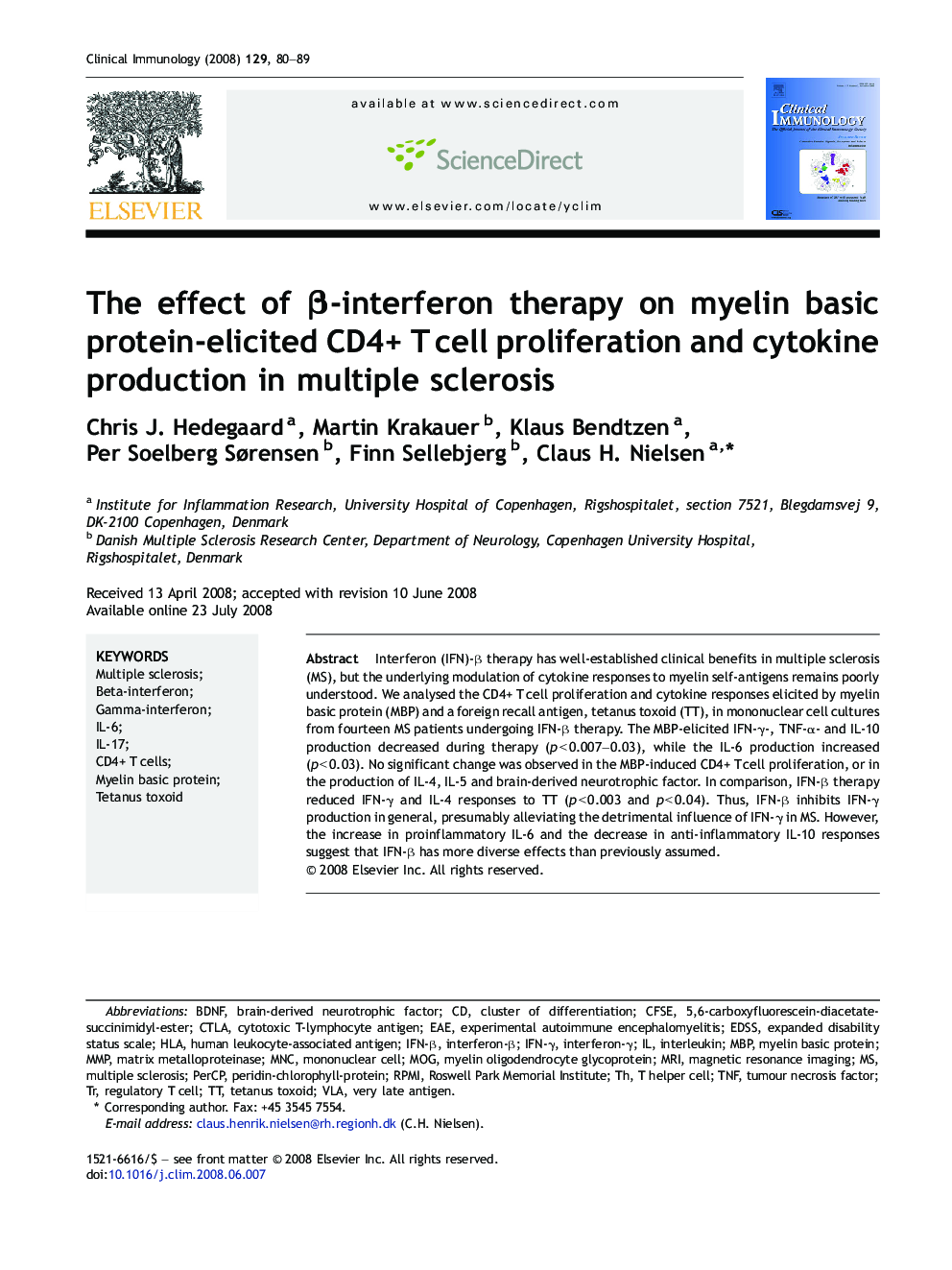| Article ID | Journal | Published Year | Pages | File Type |
|---|---|---|---|---|
| 3258298 | Clinical Immunology | 2008 | 10 Pages |
Interferon (IFN)-β therapy has well-established clinical benefits in multiple sclerosis (MS), but the underlying modulation of cytokine responses to myelin self-antigens remains poorly understood. We analysed the CD4+ T cell proliferation and cytokine responses elicited by myelin basic protein (MBP) and a foreign recall antigen, tetanus toxoid (TT), in mononuclear cell cultures from fourteen MS patients undergoing IFN-β therapy. The MBP-elicited IFN-γ-, TNF-α- and IL-10 production decreased during therapy (p < 0.007–0.03), while the IL-6 production increased (p < 0.03). No significant change was observed in the MBP-induced CD4+ T cell proliferation, or in the production of IL-4, IL-5 and brain-derived neurotrophic factor. In comparison, IFN-β therapy reduced IFN-γ and IL-4 responses to TT (p < 0.003 and p < 0.04). Thus, IFN-β inhibits IFN-γ production in general, presumably alleviating the detrimental influence of IFN-γ in MS. However, the increase in proinflammatory IL-6 and the decrease in anti-inflammatory IL-10 responses suggest that IFN-β has more diverse effects than previously assumed.
